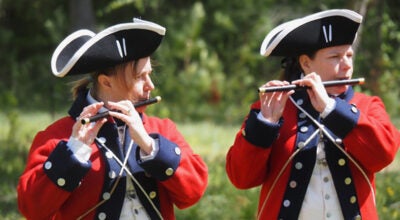Home education on the rise
Published 9:57 am Tuesday, August 24, 2010
“Education begins at home” – that popular saying now holds more meaning than ever before.
Education can occur without the presence of big yellow school buses; long hallways with entryways to classrooms; the ringing of school bells; or even without chalkboards, world maps and desks.
At many locations throughout the Roanoke-Chowan area and statewide, education is occurring without the normal tell-tale signs of children inside a typical brick and mortar structure.
According to the latest numbers provided by the N.C. Division of Non-Public Education (DNPE), the number of home schools has more than doubled in the last 10 years, with 43,316 in operation during the 2009-10 school year. That’s compared to 16,623 home schools during the 1999-2000 school year, according to Dr. Chená Flood, DNPE Director. The data shows an average 10.1 percent increase each year.
Home schools are located in all 100 counties of the state.
According to the 2009-10 numbers, a total of 261 home schools were in operation in the R-C area (Northampton: 76; Gates: 72; Bertie: 58; and Hertford: 55). An estimated 507 students were enrolled in those schools as of the last academic year (Gates: 184; Northampton: 161; Bertie: 87; and Hertford: 75).
The DNPE report revealed 246 home schools operating in the four local counties during the 2008-09 academic year, attended by a total of 397 students.
Ten years ago (1999-2000), the number of R-C area home schools stood at 88 (Hertford: 25; Northampton: 24; Gates: 21; and Bertie: 18). Those schools combined to enroll 157 students (Hertford: 60; Northampton: 38; Bertie: 30; and Gates: 29).
The first year (1988-89) that home school records were kept statewide, only six local students were homeschooled. Hertford County had four of those while Bertie and Northampton had one each.
For Amy Warren of Bertie County, the decision she and her husband reached to educate at home was simple.
“We believed it to be best for our daughters,” Warren said. “I have been homeschooling for three years and thoroughly enjoy it.”
The Warrens joined HOPE Homeschooling Support Group two years ago.
“Our home school families live in Hertford, Bertie, Gates and other surrounding counties,” she said. “We currently have approximately 40 students on our roster. We also have co-op classes where we bring students together and parents teach different subjects.”
Why is homeschooling growing in popularity?
“I think there are so many reasons for this,” Warren stated. “Some will say there is a growing dissatisfaction with public education. This does not mean we do not believe that teachers are a very important part of our community. Others, like myself, simply believe it is the best choice for our children. Some choose homeschooling because they believe there is an increasing sense of hostility toward their religious beliefs and moral structure.”
Starting a home school, according to Warren, is as simple as making contact with DNPE. She said home schools can be started as early as a parent wants to begin teaching their child.
As far as legal requirements, a Notice of Intent to Operate a School must be completed if the child is 7 – 15 or 16-plus and planning on driving. Visit www.ncdnpe.com for a home school form. After it’s submitted, parents will receive a postcard that shows they can legally operate a home school.
Warren said a parent only needs a high school diploma or equivalent to home school their children. Much of the home school curriculum available is written with the understanding that a parent will be teaching the subject matter.
“Every home school family is responsible for finding their own curriculum,” Warren noted. “There is an array of curriculum out there. I know families who purchase very expensive curriculums and others that teach from library books and online worksheets.”
Warren added there standardized tests that homeschooled students must take. Quoting an excerpt from the North Carolinians for Home Education website (www.nche.com), Warren said that home school teachers are required to, “administer a nationally standardized test, or other equivalent measurement, that measures achievement in the areas of English grammar, reading, spelling, and math, to every student each year, and maintain the results on file for one year, subject to inspection by a duly authorized representative of the State.”
Outside activities are also part of the home school environment.
“Depending on the community you live in, there can be a lot of opportunities for homeschoolers to be involved in extra-curricular activities,” Warren said. “HOPE Homeschooling provides our area’s home school families with planned field trips so our students can be exposed to museums, fine arts and events that will supplement their studies and provide community awareness. Many of us also put our children in sports and clubs such as Awana and Girl/Boy Scouts or 4-H.”
North Carolina officially legalized the concept of home instruction, in modern times, starting with the 1985-86 school year. Today, home school enrollment constitutes slightly less than five percent of the state’s compulsory attendance age student population (ages 7 through 16).
The counties with the largest number of home schools during the 2009-10 school year included Wake (4,023), Mecklenburg (3,131) and Buncombe (1,666). Counties with the least number of home schools were Tyrrell (23), Hyde (33), and Clay (44).
For more detailed statistical information, visit www.ncdnpe.org/ , click on “Home Schools” and then on “State of North Carolina Home School Statistics.” State of North Carolina home school statistics are available back to the 1985-86 school year and trace the rate of new school growth as well as the operational longevity of home schools.



